|
There are few religious images that hold more significance for me than that of the Sacred Heart of Jesus. My grandmother, a pillar of faith in our Mexican-American family, kept a framed copy of the image in her bedroom, adorned with numerous prayer cards, mementos, and old palm branches. For a young child walking by the door, that image seemed both mysterious and comforting. What was it actually depicting and why should it be a focus of such devotion? Who was this Jesus who stared out at me, gesturing to the flaming heart in his chest, poised as if to offer it out through the frame of the picture? Only years later would the full meaning of the image become apparent, as I learned more about the history of Christianity and the fundamental meaning of the Incarnation. Devotion to the Sacred Heart of Jesus, which developed particularly in 17th century France from earlier medieval devotions to Christ, is about much more than the image itself. Given particular shape by the writings and experiences of figures such as St. John Eudes and St. Margaret Mary Alacoque, the devotion is a way of contemplating more deeply the mystery of God’s love for humanity expressed in the true human existence of the Son of God as the Incarnate Word. Ultimately, the image and devotion remind us that the God we confess as Christians is not a powerful yet distant God. Rather, the God who so loved the world (Jn 3:16) loved us in such a way that he truly entered into human life, becoming a human being not merely in appearance but complete with body and soul, mind and heart. In a certain way, the devotion trains our minds to resist passing over the Incarnation as simply a well-worn article of doctrine, affirmed as a matter of course but rarely considered more closely for its radical implications. Christianity is not ultimately a belief in formulas but rather an encounter with God in faith expressed, preserved, and remembered authentically through such fundamental doctrines as the Incarnation (cf. Catechism of the Catholic Church §170). As Pope Benedict XVI wrote so beautifully in his first encyclical, Deus Caritas Est, “being Christian is not the result of an ethical choice or a lofty idea, but the encounter with an event, a person, which gives life a new horizon and a decisive direction” (Deus Caritas Est, §1). The devotion to the Sacred Heart, and the strikingly concrete image of a human heart, presents this encounter in high relief. Jesus Christ is much more than a moral teacher or religious sage. He is much more than a simple mode of communication between God and human beings, or a courier of divine knowledge and commandments. He is, instead, the Good Shepherd who has come to us, whose heart is moved with pity. He is the Bridegroom who has loved us with a human heart and given himself completely for us. He is the God who is Love (1 Jn 4:8), who unites to himself a human heart in the Incarnation and transfigures it with the fire of divine love as the heart of the Incarnate God. This good (and truly astounding) news is depicted in the gaze and kindled heart, the crown of thorns and the cross, of the image of Jesus that hung in my grandmother’s bedroom. The image and devotion, so widespread now as to feel fundamentally traditional, invites all Christians to return in awe to an encounter with this God who has loved us and humbled himself so much for our sake, “becoming obedient to death, even death on a cross” (Phil 2:8). On this Solemnity of the Most Sacred Heart of Jesus, may we turn to Jesus, who is turned to us and always has his eyes fixed lovingly upon us (cf. St. John Eudes, Letter 9), so that we may “know the love of Christ which surpasses knowledge… [and] be filled with all the fullness of God” (Eph 3:19).
1 Comment
“O my people, I will open your graves and have you rise from them, and bring you back to the land of Israel. Then you shall know that I am the LORD.”-Ez. 37:12-13 “Come out!” The words reverberate and resound in the stench-filled tomb. We too need to hear the words proclaimed to the dead man as we approach the end of our Lenten journeys. Come out! Lent has been our own time of preparing for resurrection—abstaining from anything that deadens us to the voice of Christ inviting us to the fullness of life. For the past few weeks, we have participated in spiritual practices that renew and refresh our spirits. We’ve journeyed with Jesus in our own deserts. And the culmination of this journey is about to occur in only a couple more weeks. Lazarus’ resurrection precedes the Resurrection that changes everything. It is a glimpse of what awaits us after death. The once rotting man stumbles out of the dark and into the light of Christ—his dear friend. Lazarus’ sisters, Mary and Martha, do not even say his name when telling Jesus of his illness, but identify him simply as “the one you love.” The one you love…What a beautiful way to be identified. I think about this for a moment before realizing this is what we are all called to and all invited to: to be the ones Christ loves. This short phrase is our deepest identity as baptized sons and daughters. We are the ones He loves. And as we prepare for Holy Week and Easter Sunday, this reality will be fully demonstrated: “For God so loved the world that he gave his only Son” (John 3:16). Jesus will tell us on Good Friday, embracing us with arms wide open on the Cross, “you are the one I love.” As a result of this great gift, Christ can call us to resurrection—not only after death, but in the here and now. So many realities in our world today threaten to numb us from this true reality. Perhaps we find ourselves in Mary’s shoes. When she and her sister hear of Jesus’ coming, Martha runs to meet Him, but Mary stays where she is. Was hope dead within her? Was she too consumed with her grief to dare to have faith? Did death have the last word? Perhaps many of us feel the same way: disillusioned. Tired. Grieving. Doubtful. But Mary’s sister, Martha, shows us another way. Her path leads to the resurrection of her heart in the here and now. In today’s Gospel, the sisters seem to have traded places. Today, it is Martha who chooses the better part. She runs to meet Christ at the moment she hears of His coming. In spite of any doubt, fear, disillusion, or grief—she acts in hope. And this leap of faith is what enables her to give Jesus her all and say, “Lord, if you had been here, my brother would not have died. But even now I know that whatever you ask of God, God will give you.” (emphasis added) (John 11:22) In these words, I hear her say, “Lord, I am disappointed. I am grieving. My brother has died and you were not here. Had you been here, he would have lived. But I give this desire to you. I trust in you. Let it be done according to God’s word.” This, in a sense, can be Martha’s fiat. Her surrendered disposition, mixed with faith, trust, and hope, is what then enables her to confirm, “Yes, Lord. I have come to believe that you are the Christ, the Son of God, the one who is coming into the world.” Martha has joined the woman at the well and the Apostle Peter in confirming Christ’s identity as the Messiah. She has “come out” of her own tomb. This past calendar year has likely felt like a tomb for many of us. Perhaps we feel most like the seemingly abandoned Lazarus languishing in the dark. “Where were you, Jesus?” we may ask with Mary and Martha. “Do you not care that the one you love is suffering?” Jesus does more than care. It is so comforting to read that “Jesus wept” at the knowledge of Lazarus’ death and became greatly perturbed. I can imagine the same, if not a greater, reaction at the death of his earthly father, Joseph. Christ weeps at our suffering. The Creator shudders to see His creation perish. This is not what we were made for. And in His humanity, Christ weeps with us and for us. But not only will the Son of God weep for His loved ones; He will die for them in just a few days. It is not enough for Him to acknowledge our suffering—He takes it on. He transforms it. He transfigures it. He resurrects it. As we approach the end of the Lenten season, let us not stay put with Mary but run out with hope like Martha. I pray this Easter Sunday to say firmly with her, “Yes, Lord. I have come to believe that you are the Christ, the Son of God, the one who is coming into the world.” We are the ones whom He loves. Let us spend some time relishing, resting, and growing in this identity in the remainder of the Lenten season and beyond. In these final weeks of Lent, let us continue to “come out” of our tombs with our prayers, fasting, and almsgiving so that we may not stumble as Lazarus did but run out towards Him who calls our name. Let us come out into the light. For more resources to accompany you on your Lenten journey, please click here. Click here for this Sunday's Mass readings. Tomorrow, we celebrate the birthday of St. Vincent Pallotti, patron of the Catholic Apostolate Center and founder of the Union of Catholic Apostolate. St. Vincent Pallotti was born on April 21, 1795. How appropriate for the saint who lived and worked in the city of Rome to share his birthday with the traditional date for the founding of the city. To help celebrate his birthday, I have put together a list of some of his more interesting achievements and activities during his life. I hope that you too will be inspired by his life. 1) The Baptism of St. Vincent Pallotti St. Vincent Pallotti was baptized on April 22, 1795 in the St. Lawrence Church in Rome. This began his life in the church. 2) St. Vincent Pallotti on Holiday On his arrival in Frascati around 1805, St. Vincent Pallotti exchanged his new shoes for that of a poor boy. Giving away his new clothing to the poor would become a lifelong habit for the saint. 3) St. Vincent Pallotti Makes a Prediction While speaking with the young Giovanni Mastai-Ferretti in 1817, St. Vincent Pallotti predicted that he would one day be elected to the papacy. Mastai-Ferretti was elected Bishop of Rome on June 16, 1846. 4) St. Vincent Pallotti the Professor St. Vincent Pallotti was awarded two doctoral degrees in both theology and philosophy in 1814 and 1819. Teaching was one of the favorite activities of the saint. 5) St. Vincent Pallotti Showing Courage During the cholera epidemic of 1837, St. Vincent Pallotti organized a barefoot procession of religious. This action was penitential and showed that they were not afraid of the disease. 6) Catholic Apostolate Received Church Approval St. Vincent Pallotti received approval for the Catholic Apostolate from the Church in 1835. Pallotti also received support for the Catholic Apostolate from Pope Gregory XVI when others objected to it. 7) St. Vincent Pallotti the Chaplain Beginning in 1838, St. Vincent Pallotti served as a prison chaplain in Rome. He often worked with the condemned, saving many souls. He had a true willingness to serve all, especially the poor and the marginalized. 8) St. Vincent Pallotti the Peacekeeper St. Vincent Pallotti stopped a riot in the Trastevere neighborhood of Rome. He implored the people to stop rioting by showing them an image of Mary, Mother of Divine Love. 9) St. Vincent Pallotti Preaches one Last Time On the last day of the octave of the Epiphany in 1850, St. Vincent Pallotti gave his final sermon. 10) St. Vincent Pallotti Dies In 1850, St. Vincent Pallotti gave his final blessing to his followers. He showed great courage even in the face of death. There are many more stories about St. Vincent Pallotti that you may find interesting. Check out our St. Vincent Pallotti Portal to learn more about our patron and his many works. In 1745, Fr. Alban Butler produced his collection of the Lives of the Saints. It’s been in circulation ever since, providing the faithful with stories of holy men and women as exemplars to imitate. Oftentimes, the stories in the volumes of the Lives of the Saints do not seem to portray real human beings. The brief passages list only miracles and pious deeds. Sometimes I feel that the examples used could even make the sweet St. Therese, the Little Flower, look positively scandalous in comparison! This is not to say that Fr. Butler’s work is in vain. It is good that these names are recorded for us. As we celebrate All Saints’ Day, we should honor those who came before us and passed down the faith from generation to generation. But this feast day raises the question: what is a saint? The process of canonization tells us that we know when a certain person is surely in Heaven and that their life is worth imitating, but there are more unrecognized saints than those that are recognized. Saints are people who, through the course of their lives, have grown into the image of themselves which God holds in His divine mind. They become who they were created to be in the fullest sense. The marvelous thing about saints is that they were real, gloriously messy, complex human persons. If we believe every human being is an unrepeatable expression of God’s love, then it stands to reason that every saint is an unrepeatable example of what it means to live out of that love. I think too often we get concerned with trying to imitate certain saints, like St. Therese, and forget to discover who we were created to be. You cannot be St. Therese: Part 2, or Bl. Pier Giorgio Frassati 2.0. Those roles have been taken because those two individuals had the humility to see the greatness God was inviting them into. They stepped into the journey of becoming who they were meant to be. Dr. Gianna Molla, known for giving her life to save her infant daughter’s, was not a saint because of that one action. Her life was steeped in holiness. She was a doctor, a mother, a lover of fashion, and apparently a terrible driver. But as much as I want to be her when I grow up, I can’t. I will never be a doctor, for one thing. What I can do is find pieces of my personality in hers, and I can learn from her example of how she lived and how she handled certain situations and use those lessons in my own life—much like getting advice from an older sister. Holy lives are not replicas of each other. You cannot program holiness by inserting a set of statutes, commands, circumstances, or ideals into people. Pope Emeritus Benedict XVI, in his General Audience on April 13, 2011, said “Holiness, the fullness of Christian life, does not consist in carrying out extraordinary enterprises but in being united with Christ, in living his mysteries, in making our own his example, his thoughts, his behavior” (emphasis mine). We are called to live as Christ in a particular manner, in this particular time, with our own particular gifts. I cannot be you and you cannot be me. But I need you to be the person God has called you to be because we are part of the same mystical Body of Christ, alongside the saints. Conversely, I need to become the person God created me to be as well. We will never know all of our spiritual brothers and sisters until we reach Heaven. As members of the Church triumphant, the saints want us united with God even more than we want to be with Him because they love more perfectly than we do. May we imitate their holy example and ask for their guidance in living out of the love of God more and more completely each day. Reflection Questions: Who is your favorite obscure saint? What quality of sanctity do you want to grow in this season? Let’s face it: We live in a world that doesn’t really understand the meaning of love. We hear this word “love” thrown around a lot. There are any number of things we can say that we love in a day: our latest tv show binge, a favorite food, or place that we have travelled. We use this word with such inconsistency that it has begun to lose its meaning. How often do we succeed at recognizing and paying accolades to these “lesser loves” while failing to acknowledge the people and moments that actually deserve our recognition? All the while we are too easily forgetting Jesus, who is Love made flesh. The Gospel of John says, “No one has greater love than this, to lay down one’s life for one’s friends.” While the world proposes time and time again that we settle for lesser loves, the Gospel promises us that if we want to find our lives - if we want to find love - we must lay ourselves down. St. Maximilian Kolbe, whose feast we celebrate today, exhibited this in a way that was truly heroic. Not only did he defend and promulgate the faith during the height of World War II, but he, in a final act of heroic love, also laid down his life for a man randomly selected to die in a starvation chamber at Auschwitz. When St. Maximilian Kolbe was asked who he was by the Nazi guards, he simply responded: “I am a Catholic priest.” Maximillian Kolbe’s sacrifice is what the Church calls an act of “redemptive suffering” – suffering which allows and invites us to participate in Christ’s redeeming sacrifice and make manifest the love of God. The Catechism states: The cross is the unique sacrifice of Christ, the "one mediator between God and men". But because in his incarnate divine person he has in some way united himself to every man, "the possibility of being made partners, in a way known to God, in the paschal mystery" is offered to all men. He calls his disciples to "take up [their] cross and follow (him)",[Mt.16:24] for "Christ also suffered for (us), leaving (us) an example so that (we) should follow in his steps."[1Pet.2:21] In fact Jesus desires to associate with his redeeming sacrifice those who were to be its first beneficiaries. This is achieved supremely in the case of his mother, who was associated more intimately than any other person in the mystery of his redemptive suffering. Because St. Maximilian knew and loved the truth of the Gospels, he was found ministering to others and singing praises to God even as he was being starved to death. Maximilian used his suffering to show his fellow prisoners a God who loves us so much that he gave His life to us on the Cross. His own life provides a powerful example of someone who, even in the midst of horrific circumstances, has so much confidence in Christ that he is able to sing out, “For my yoke is easy, my burden light.” As Christians in the 21st century, it is our privilege to live lives of heroic love. Although most of us won’t be called to the sufferings of St. Maximilian Kolbe, we are ALL called to show and share love in a way that points others to the love of the Cross. St. Maximillian Kolbe, pray for us. Today we celebrate the fifth anniversary of Pope Francis’ pontificate. In these short years, Pope Francis has done much to continue the work of his predecessors in building a culture of evangelization and inviting each member of the Church to live out their baptismal call as missionary disciples. Several important Church documents have been released throughout his papacy, including Evangelii Gaudium, the Apostolic Exhortation on the Proclamation of the Gospel in Today’s World, Laudato Si’, the encyclical on Care for our Common Home, and Amoris Laetitia, a post-synodal Apostolic Exhortation on Love in the Family. Pope Francis has participated in two World Youth Days, made roughly 22 international apostolic visits, and has canonized 885 saints. He called for the Jubilee Year of Mercy from 2015-2016. I would like to celebrate the fifth anniversary of his election by sharing some quotes that characterize his papacy and capture its tone.
1. A Church on Mission "I prefer a Church which is bruised, hurting and dirty because it has been out on the streets, rather than a Church which is unhealthy from being confined and from clinging to its own security… More than by fear of going astray, my hope is that we will be moved by the fear of remaining shut up within structures which give us a false sense of security, within rules which make us harsh judges, within habits which make us feel safe, while at our door people are starving. -Evangelii Gaudium, 49 Pope Francis envisions a missionary church—one with open doors to welcome people in, but also for each of us to step out and bring the Good News of Jesus Christ to the world. As Christians, it can be tempting to remain within the safety of our parish and Church community. However, Jesus calls us to “go out to the nations” and encounter the hurting world. Pope Francis reminds us of this evangelizing spirit entrusted to us by Jesus Christ and challenges us to be a Church on mission. 2. The Inherent Dignity of Mankind and Creation “Our insistence that each human being is an image of God should not make us overlook the fact that each creature has its own purpose. None is superfluous. The entire material universe speaks of God’s love, his boundless affection for us. Soil, water, mountains: everything is, as it were, a caress of God.” -Laudato Si, 84 About two years into his papacy, Pope Francis released his encyclical Laudato Si’, focusing on our responsibility as stewards of creation. No other pope has dedicated an entire encyclical to the care of creation. In doing so, Pope Francis reminds us that all of the created world helps us to glimpse and better know God Himself. Mankind is the pinnacle of creation, made in God’s image and likeness. In Laudato Si’, Pope Francis reminds us of each person’s inherent dignity, made with his or her own purpose, gifts, and mission. 3. The Transformative Power of Christ’s Love “Jesus’ love goes before us, his look anticipates our needs. He can see beyond appearances, beyond sin, beyond failures and unworthiness…He sees beyond this, to our dignity as sons and daughters, a dignity at times sullied by sin, but one which endures in the depth of our soul. He came precisely to seek out all those who feel unworthy of God, unworthy of others.” – Homily at Plaza de la Revolución during his Apostolic Journey to Cuba At the heart of the Christian life is an encounter with Jesus Christ. His love is transformative, life-changing. We encounter Christ in prayer, the sacraments, the parish, in one another. However, we cannot overestimate the importance of our prayer life—of moments throughout each day in which we enter into dialogue with God, offer up our work and sacrifices, remember the needs of others, or give God praise. When we carve out time each day for prayer, we are better able to know the look of Christ that goes beyond the worldly way of seeing things into our dignity as sons and daughters of God. 4. The Role of the Church in the Christian Life "We cannot understand Christ without his Church, just as we cannot understand the Church without her spouse, Christ Jesus, who gave his life out of love, and who makes us see that it is worth the price.” -Prayer Vigil for the Festival of Families in Philadelphia I love this quote because it sums up the relationship between Christ and His Church. We cannot know Christ apart from the Church, just as the Church cannot exist without Christ. Christ founded the Church in order to be a place of encounter with Him through the sacraments and through one another. We come to more fully know the love of God in the life of each parish. How can we create communities of encounter in our various parishes? Is the light of Christ truly shining forth in our communities? 5. The Messiness and Joy of Family Life “I thank God that many families, which are far from considering themselves perfect, live in love, fulfill their calling and keep moving forward, even if they fall many times along the way. The Synod’s reflections show us that there is no stereotype of the ideal family, but rather a challenging mosaic made up of many different realities, with all their joys, hopes and problems.” -Amoris Laetitia, 57 Pope Francis speaks realistically of human life and love. The family, the domestic church, is not perfect. We are called to learn and grow in love throughout our entire lives, just as we are called to learn and grow in holiness. The family is the place where love is mastered and refined. It is the foundation of society and of the Church. Pope Francis calls families to journey joyfully on the path of love. He invites us not to fear our imperfection, but to keep moving forward in hope and joy. 6. Not Letting Fear Impact Vocational Discernment “The work of discernment identifies our fears and can then help us to overcome them, opening us to life and helping us to calmly face the challenges that come our way. For us Christians in particular, fear must never have the last word but rather should be an occasion to make an act of faith in God… and in life!” -Message for World Youth Day Panama In preparation for the 2018 Synod on Young People, the Faith and Vocational Discernment and World Youth Day 2019 in Panama, Pope Francis spoke of the process of discernment, especially for young people today. Fear is often at the heart of our actions—or inaction. Christians, however, have no cause for fear. As we discern God’s call for our life each day, let us place our trust in Him and act with courage and boldness. God has created us for a unique mission that only we can fulfill in His Church. Let us discern his will for us, as Pope Francis encourages, “trusting that he will lead us to a good end.” 7. The Importance of Contemplating and Encountering God’s Mercy “We need constantly to contemplate the mystery of mercy. It is a wellspring of joy, serenity, and peace. Our salvation depends on it.” -Misericordiae Vultus, Bull of Indiction for the Extraordinary Jubilee of Mercy Starting in 2015, Pope Francis instituted the first Jubilee Year of Mercy in the Catholic Church. Throughout this time, he invited the Church to contemplate once more the merciful gaze of the Father and experience God’s mercy in our lives. We cannot be merciful without first having personally experienced the mercy of God. I loved that as a Church, we dedicated a year to contemplating this great mystery. We know God as Father, Savior, Creator, Just Judge, and many other titles. But how often to experience His mercy, as evidenced in the parable of the Prodigal Son and in the story of Jesus meeting the Woman at the Well? 8. Our True Identity “That is our real ‘stature,’ our spiritual identity: we are God’s beloved children, always. So you can see that not to accept ourselves, to live glumly, to be negative, means not to recognize our deepest identity…God loves us the way we are, and no sin, fault or mistake of ours makes him change his mind…God counts on you for what you are, not for what you possess…In his eyes, you are precious, and your value is inestimable.” -Homily at World Youth Day Mass in Krakow At World Youth Day in Krakow back in 2016, Pope Francis reminded youth and young adults of an incredible universal truth : that our identity lies in being God’s children. In a world so often focused on our careers, material possessions, prestige, or online presence, Pope Francis gets to the heart of our identity as being completely loved by God. It’s easy to forget that we are loved simply because we exist. We all hold a valuable and irreplaceable space in God’s heart. By being most authentically ourselves, we are better able to fulfill our mission within His kingdom and become the saints He wants us to be. 9. Using Technology and Social Media Wisely “Communication has the power to build bridges, to enable encounter and inclusion, and thus to enrich society…Words can build bridges between individuals and within families, social groups and peoples. This is possible both in the material world and the digital world.” -World Day of Communication 2016 We live in a world saturated by social media, technology, and widespread communication. Used irresponsibly, these can isolate and distract mankind. Pope Francis encourages people today to use technology and social media in order to promote a culture of encounter and accompaniment. He challenges us to be “digital citizens” who are not afraid to use technology to spread the Gospel. 10. Being People “For Others” “Love has no alibi. Whenever we set out to love as Jesus loved, we have to take the Lord as our example; especially when it comes to loving the poor.” -Message for the First World Day of the Poor In 2017, Pope Francis called for the first World Day of the Poor—a day in which we act not only in word, but in deed in order to alleviate poverty and accompany those on the margins of society. Pope Francis encourages the world to give and not to count the cost, to love as God first loved us. In a culture of consumerism, we can easily forget to think about our neighbor or those less fortunate than ourselves. Pope Francis reminds us of the importance of giving freely, drawing near to the poor, embracing them, and being transformed through that process. Click here for free resources on Catholic Social Teaching. Question for Reflection: Do you have a favorite quote from Pope Francis’ papacy that’s not listed above? Share it in the comment section below and let us know why it’s powerful for you. In my prayer life recently, God has been speaking to me a lot about obedience. Obedience to Him, to my family, to my job, to my responsibilities. Perhaps it is because I’m not very good at some of my responsibilities, or maybe it is a call to become more in tune with and to pray for God’s will.
In today’s Gospel (Mark 1:40-45), Jesus heals a man who comes to him asking to be cleaned of his leprosy. Upon healing him completely, Jesus says, “See that you tell no one anything, but go, show yourself to the priest and offer for your cleansing what Moses prescribed; that will be proof for them” (Mark 1:44). Instead, the man “began to publicize the whole manner” where it made it “impossible for Jesus to enter a town openly” (Mark 1:45). How often are we disobedient like this man? How often has Jesus told us something that we missed completely? How often have we placed our desires and actions above what God wills for us? By his choice to disobey Jesus, instead of exalting God, the healed man exalts himself. The Catechism tells us that “sin sets itself against God's love for us and turns our hearts away from it” and that sin is “opposed to the obedience of Jesus.” When the healed man ignored Jesus’ directions, it furthered him from fully understanding God’s love and mercy for him. For us, too, when we sin and choose to follow our will over the Lord’s, we distance ourselves from God’s love. How can we know God’s will for us? It is not always so easily stated to us as it was to the man who was healed of his leprosy. To know God’s will, we must pray with open and patient hearts. Pope Francis recommends that we pray for the desire to follow God’s will, to know his will and to follow it. The saints are also great models of teaching us to pray and love God’s will for us. They are in complete union with Jesus in heaven because they learned to desire, love, and follow God’s will for them throughout their earthly lives. Look to any saint, and they will show you obedience. For example, St. Maximilian Kolbe was martyred, taking the place of a man who was to be killed in Auschwitz. Before that, his writings show that his prayer life was repeatedly focused on knowing the will of God. St. Maximilian Kolbe said, “Obedience is the one and the only way of wisdom and prudence for us to offer glory to God... Let us love our loving Father with all our hearts. Let our obedience increase that love, above all when it requires us to surrender our own will. Jesus Christ crucified is our sublime guide toward growth in God’s love.” St. Maximilian Kolbe’s words and sacrifice point us towards obedience, and teach us that obedience helps us to grow in God’s love. So perhaps my prayers that are revealing obedience as a theme are leading me to stretch my heart to know and share God’s love. Through obedience, I can know Christ’s peace and mercy—the same love he felt when the man with leprosy came to him; the same love he felt when he died on the cross. It is my prayer that as the desire for obedience touches my heart, you too may know the love and joy that comes from asking God to desire his will, know his will, and follow his will. Questions for Reflection: What are some ways you can grow in obedience to God’s will this year? Are there any saints who inspire you by their willingness to follow Christ? Alyce Shields is a teacher in Washington, D.C. The call to evangelize is at the heart of our Christian faith. We are evangelizers at our core; it makes up our very identity. And yet, if I were to ask most people sitting in the church pews at Mass if they are evangelists, they would probably shake their heads and identify themselves in other terms: vocation, occupation, role in the family, country of origin. A professor of mine in graduate school put it starkly when he said most of the laity are experiencing an “identity crisis.” We do not know, or have forgotten, who we are as members of the Body of Christ and what our role is within it. Today, Pope Francis echoes his predecessors in reminding the laity of their call to become missionary disciples. This is a call that originates from God Himself, with the Risen Christ saying to his beloved disciples before ascending to the Father, “Go and make disciples of all nations.” These words reverberate ever more powerfully for us today. Though the universal call to holiness and a greater emphasis on evangelization has roots in the papacy of Pope Paul VI and within the Second Vatican Council, Pope Francis calls the concept of sharing our encounter with Jesus Christ using the means available to us “missionary discipleship.” It is a profound concept that Pope Francis assures us is relatively simple. “The new evangelization calls for personal involvement on the part of each of the baptized,” he writes in Evangelii Gaudium. “Every Christian is challenged, here and now, to be actively engaged in evangelization; indeed, anyone who has truly experienced God’s saving love does not need much time or lengthy training to go out and proclaim that love.” Once we have encountered Jesus Christ and His merciful love, we are called to bring that encounter to others, therefore playing a unique role in salvation history. Several of my colleagues from the Catholic Apostolate Center and I were honored to discuss “The Call to Missionary Discipleship” at the Catechetical Day hosted by the Archdiocese of Washington in late October. We discussed that, as baptized Christians, we have been given the grace of Jesus Christ in order to respond to the both daunting and exhilarating call to “go out to all the nations.” This understanding of evangelization subsists not only on our personal encounter with God’s transforming love, but also on our proclamation of it. It is not enough to encounter Jesus Christ for ourselves. Like the woman at the well, we must go forth telling anyone who will listen, “Come see a man who told me everything I have done.” Below are five practical tips we came up with for living out the call to be a missionary disciple. What are we missing? Feel free to add to our list by commenting on our post below! 1. Collaboration If we are to be missionary disciples, we must be people of collaboration. This does not mean that we attend endless meetings, join committees, or fill every moment of our schedule. We propose collaboration from the beginning, which means a willingness to begin an endeavor communally with others—recognizing the valuable role each person has. Collaboration must happen among, for, and with those in our parishes and organizations. It requires openness to the promptings of the Holy Spirit, humility, dialogue, and flexibility. How can you learn from others in your community, parish, family, workplace, or neighborhood? How might God use the gifts and talents of a diverse group of people to strengthen His kingdom on earth? 2. Technology As followers of Jesus Christ, we are called to use the tools of this present age in order to re-present the Gospel to our world in a way that is innovative and re-invigorated. A major tool today that can be used to spread the Gospel message is technology, especially the internet. We can share digital content that is valuable, such as Scripture, the Catechism, and Papal and Conciliar documents, in order to become better informed about our faith. Technology can also create a new type of community, enabling us to connect with others and share information in a way that is cost-effective and not limited to physical proximity. What are some ways you can use technology to spread the Gospel and help build a civilization of love? 3. Community/Parish Life We do not exist in isolation. As Christians, our work of evangelization will not bear much fruit if we do it alone. Our community, especially our parish, strengthens us and equips us to go outside our church walls in order to evangelize. It is within the parish that we receive the sacraments, especially the Eucharist, which gives us the grace of Christ Himself. In order to be effective as missionary disciples, we are called to have a vibrant sacramental life strengthened by our communities. How does your parish community strengthen you for your mission of discipleship? 4. Relationships Relationships outside of the parish are also crucial to missionary discipleship. As mentioned above, we do not exist in isolation. Do we have a mentor or spiritual guide helping us to grow in our faith life? Do we have relationships or friendships that hold us accountable and push us to become better witnesses of faith? By developing faith-filled relationships and surrounding ourselves with mentors and guides, we ensure that we continue to grow in our role as missionary disciples. 5. Prayer Prayer is crucial not only to a life of missionary discipleship, but to the Christian life overall. Prayer is the foundation for our relationship with God, inviting us to get to know ourselves more deeply through his gaze of love and mercy and helping us to better understand our specific mission in building up the Body of Christ. Prayer can, and should be, both personal and communal. God speaks in the silence of our hearts, as well as through others. Are we carving out time in silence to converse with God and hear the promptings of the Holy Spirit? Do we read Scripture, pray the Rosary, journal, sing hymns, or reflect? By having an active prayer life, we will be better equipped to become fruitful missionary disciples. The call to missionary discipleship is both daunting and exciting, and we can live it out at any time. As Pope Francis wrote in Evangelii Gaudium, “Being a disciple means being constantly ready to bring the love of Jesus to others, and this can happen unexpectedly and in any place: on the street, in a city square, during work, on a journey.” Above, I’ve listed a few tips to fulfilling our call to become missionary disciples. What would you add to the list? To learn what the Catholic Apostolate Center is doing to form missionary disciples, click here to learn about Apostles on Mission. Peter and Paul are often depicted together in iconography in a circle, embracing one another in a brotherly hug with expressions of affection. In contrast, images of Romulus and Remus, the mythological twins, are usually facing away from each other. According to legend, Romulus and Remus, after whom the city of Rome was named, were abandoned at birth and cast into the Tiber River. When they grew up, the twins embarked on a quest to found their own city. Romulus and Remus disagreed about which hill to build their city on. Eventually, Romulus just started digging a ditch around the Palatine Hill and building a wall. Remus mocked his brother’s work, and in a fit of anger Romulus killed him; Rome and her empire were founded on fratricide. Now contrast this with the re-founding of Rome through the spread of Christianity by Sts. Peter and Paul. If anyone had a cause for strife and division, it was these two. Paul was the chief persecutor of the early Christians led by Peter. These two, at first, had little in common. It took divine action to make these enemies into brothers. Peter and Paul were ultimately bound together in a bond stronger than blood: the love of Christ. It is in this love that Peter and Paul had the foundation of their relationship. Through Christ, these two men were closer than twins in the womb. That’s something I don’t think we fully understand today. Media often portrays the family as the highest and most deserving of our love and loyalty, but there is One who has a higher claim on us. Jesus says, “Whoever loves father or mother more than me is not worthy of me, and whoever loves son or daughter more than me is not worthy of me; and whoever does not take up his cross and follow after me is not worthy of me.”[1] God must come first in our lives, as he did for Peter and Paul. All of our relationships need to take their cue from this one. It isn’t that these natural, human relationships are bad; quite the contrary, they are good. But they are called to be ordered and rooted in the love of Christ. For Peter and Paul, Jesus of Nazareth was the source of their relationship. Peter knew Jesus and walked with him for three years before Christ entrusted him with his flock. Paul, formerly Saul of Tarsus, persecuted Christ by persecuting his followers until Jesus appeared to him on the way to Damascus. Peter and Paul eventually met and talked about the workings of God in their lives and in their ministry. That doesn’t mean they always got along perfectly. In what is known as the “Incident in Antioch,” Paul calls Peter out on the issue of whether or not Gentile converts have to first become Jews and follow Jewish laws in order to be “real” Christians. Peter had previously stated that the Gentiles had no need to follow Jewish custom, and that the new covenant was open to all. However, under pressure from Jerusalem, Peter went back on his word. He traveled to Antioch, where Paul was, and Paul “opposed him to his face because he clearly was wrong.” One can almost hear the exasperation in Paul’s voice as he writes of the incident. But along with the exasperation, one can hear love. Paul is not calling Peter out for the sake of pointing out his spiritual brother’s mistake, but for the sake of the Church and Christ, whom they both love and preach. Peter accepted Paul’s rebuke. In fact, it gave Peter courage to stand up to the Judaizers, those who wanted the Gentiles to practice Jewish customs. Paul always accepted and sought out Peter’s authority as head of the Church, but it didn’t stop him from encouraging his brother to remember the truth and to care for the souls entrusted to him. Peter and Paul remind us that brothers can be born from unlikely sources. Early Christian tradition tells us they were imprisoned together for nine months before their martyrdoms on the same day. The New Rome and her Kingdom were founded on fraternal love. As we celebrate the Feast of Saints Peter and Paul, let us look to their model of fraternal correction and mutual love as we work to spread the Gospel message in our own lives. Questions for Reflection: Have you ever had to challenge a friend or family member to become a better version of themselves? Has anyone ever called you out on something you were doing that wasn’t in line with your faith?
Where has the time gone? I’ve been asking myself this question over and over again throughout the past few days. Having just graduated from college, I find it quite surreal that my life is no longer dominated by the academic schedule. I almost feel as if I am a new person, having joined the “real world” as a young adult. It is exciting to have entered a new chapter in my life and exercise control over fulfilling my desires and goals in life. During major times of transition, I think it is beneficial to take the time to seriously reflect on all who have supported me along the way and up to where I am now: typing this after a day’s work at the office in a new city. As senior year drew to a close, I recalled moments not only of joy but also of sadness and difficulty. Remembering who it was that remained at my side during those moments of formation and struggle, and valuing their friendship and presence in my life, causes me to thank God for those college experiences. Those relationships caused me to glimpse the faithfulness and love of God. Sometimes, I can’t help but wonder whom I have touched with my own presence or friendship. As a human being, I am imperfect. I experience weakness. I worry. I have doubts and deficiencies. While these are important to acknowledge, I cannot waste time dwelling on them. In my shortcomings, my relationships with others may be strained, but there is also an opportunity to grow even closer to one another. Similarly, one’s waywardness is always ready to be met with God’s faithfulness: “If we are unfaithful he remains faithful, for he cannot deny himself” (2 Tim 2:13). We are called to model God’s faithfulness in our own friendships. The authenticity of such a relationship is made plain especially in times of difficulty. I like to recall Job’s friends who, upon seeing his experience of great loss, “sat down upon the ground with him seven days and seven nights, but none of them spoke a word to him; for they saw how great was his suffering” (Job 2:13). Similarly, “Two are better than one… If the one falls, the other will help the fallen one. But woe to the solitary person! If that one should fall, there is no other to help” (Eccl 4:9). There were many times throughout college that people “sat down upon the ground” with me and many times I did the same for others. I truly saw how “two are better than one,”—how we need one another to help us when we fall. Talking to my peers as graduation approached, I heard and shared thoughts of both excitement and apprehension. Graduation sometimes resembles the “real world” knocking on one’s door with a collection call. I agreed with this somber view until I attended a retreat where I heard it said that the “real world” touted by society was nothing more than a deprivation of what readily exists for the faithful: the Church. At every moment, God walks with us. He readily comforts us, listens to us, calls to us, and freely and completely offers His perfect love to us. While the world we live in can be unforgiving, rough, and fatiguing, let us recall Who walks beside us and never fails us. We are called to imitate this unfailing love and walk beside our brothers and sisters. Our lives are spent in pilgrimage seeking God. Along the way, we often encounter others who are seeking the same end. Sharing this pursuit, then, becomes a shared labor of faithfulness and strength. We are weak on our own, but together, as we experience in the Church, strength and comfort are found to help us journey on. As one of my friends reflected, “[T]he journey to heaven is not a solo trek. You seek to bring everyone with you. If one person falls, you travel to him or her, and help them get up, and you carry along together towards the destination. This is what God has entrusted us to do, to reveal such love as His love.” God is faithful, especially in times of great change. As I begin this new chapter of my life, I strive to reveal the faithful love of God to those I encounter. May we, at every moment, endeavor to do the same! Question for Reflection: How do you turn to God in times of transition? When they had gone ashore, they saw a charcoal fire there, with fish on it, and bread. Jesus said to them, ‘Bring some of the fish that you have just caught . . . Come and have breakfast.’ –John 21: 9-10 Easter is a season of renewal, wonder, and awe. The light of Christ conquers darkness, and new life overcomes sin and death. Hope lives, as Fr. Frank wrote, and “We are called to see with the eyes of faith in Christ.” Excitement wells up in me around this time every year when the world is waking up – new blooms appear on trees and in gardens while the sunlight lasts longer each day. Even more exciting than this change in nature is the joy that comes from the Easter Vigil, when the Church welcomes new members and we renew our baptismal promises. As the earth awakens each spring, this liturgical season also invites us to wake up to Christ’s triumphant love. The Gospel readings following Easter Sunday and the Easter Octave are cherished stories and intimate encounters with Jesus. He appears to his disciples when their eyes are still bleary from what happened on the Cross. He has indeed risen as he said. They are called to see and to not be afraid, to touch his wounds, and to ask him questions. One such story occurs before Jesus asks Peter if he loves him. Jesus first directs the disciples to an overwhelming catch on the Sea of Tiberius after a long night of unsuccessful fishing. Their nets overflow. They do not recognize him at first until this moment. Then, John tells Peter and the others, “It is the Lord.” Peter impetuously jumps out to join Jesus while the others row ashore. Sitting at the charcoal fire with fish and bread, Jesus invites the fishermen to come and eat breakfast. I imagine this moment filled with wonder and awe. The disciples will now be “fishers of men,” following Christ’s example and listening to his voice. In the forty days after his Resurrection, Jesus prepares his disciples for their new life of faith and evangelization. Like a dear friend, he gives them advice, teaches them, and even cooks for them. The meal on the beach must have tasted wonderful! This scene is a gift to the senses, like the coming of springtime and the exuberance of the Easter Vigil. What would it be like to be one of the disciples on that beach at daybreak? The cool breeze and the smell of fire caught up in the air, the morning colors dancing in the sky from the sunrise, the feeling of contentment the disciples must have had after catching so many fish, their weariness from a long night, and the sound of Jesus’ voice giving gentle direction. What would it be like to recall all the times you sat with him, to remember the day of his death, and then be present with him and eat fish and bread? This moment on the beach is an intimate encounter that we are also called to experience after the events of Holy Week and throughout all of our lives. During this fifty-day season, I invite you to listen, to sit, talk, and eat with Jesus on the seashore. Reflection Question: What signs of Easter have you noticed springing up in your life since Holy Week? How will you share and enjoy them with Jesus? “I am the resurrection and the life, says the Lord; whoever believes in me, even if he dies, will never die.”
Today’s Gospel challenged my understanding of what it means to be compassionate. When Jesus learned that a loved one was ill, He responded in a peculiar manner. He didn’t rush to the sick one’s side or hurry to comfort His beloved’s family. Rather, He waited two days. Why did He wait two days? I sure wouldn’t have done that. If He knew all along that He would raise Lazarus, why would He prolong the wounded agony of Mary and Martha? How could Jesus desert those He loved in their moment of need? It seems almost like a test, a cruel and unnecessary test. Yet I suspect Jesus had a different intention. By waiting two extra days He was not punishing or testing Mary and Martha but inviting them to examine their own brokenness. The idea of resting in brokenness, rather than avoiding it, has been a particularly challenging concept for me. I first encountered it in Bryan Stevenson’s book Just Mercy, in which Stevenson says “We can embrace our humanness, which means embracing our broken natures and the compassion that remains our best hope for healing. Or we can deny our brokenness, forswear compassion, and, as a result, deny our own humanity.” It seems that Jesus chose the former. When He finally arrived in Bethany and witnessed the woundedness of those He loved, He “became perturbed and deeply troubled.” Then, “Jesus wept.” Knowing that Jesus wept helps me reclaim my own brokenness and affirms that truly embodying compassion requires entering into the chaos of woundedness, both my own and that of the “other” person. Prayer: God of grace, help me rest in my woundedness. When I feel most alone and deserted, remind me of Jesus’ constant refrain “Do not be afraid.” Help me remember that Jesus Himself, the almighty Son of God, wept for the pain of His community. Let me never forget that one of Jesus’ greatest miracles of raising Lazarus from the dead was precipitated by His solidarity in suffering with those He loved dearly. Amen. Focus on: Social Justice How have you been wounded by the, as Dr. Martin Luther King Jr. puts it, “sickness of racism, excessive materialism, and militarism?” How can you – and your surrounding communities – enter into this brokenness and encounter healing compassion? Service Inspiration: My mother, Sue, understands part of my volunteer experience, but struggles with other components. However, I recently babysat for a colleague’s children, a two-and-a-half year old and a six-month old. When I left, I was exhausted. I realized later that I watched two boys the same age difference as my brother and I, but only for a few hours. My mom did it for years, and then became my teacher and homeschooled us. She served as an enormous role model, never asking for thanks or recognition, silently taking on her children’s struggles. She is an inspiration and reminder of Jesus here on Earth. *This Lenten reflection was originally published on the Catholic Volunteer Network Blog and was posted with permission. Greg Hamilton attended Saint Michael’s College in the grace-filled Green Mountain State of Vermont and is currently serving as a Jesuit Volunteer in Washington D.C. at the Campaign for the Fair Sentencing of Youth. Most days, Greg finds a way to involve his favorite poet, Mary Oliver, in his routine. Deus Caritas est: God is Love. How many times have we heard this simple yet profound theological truth in a homily, story, or teaching? How many times have we taken this for granted? In a world where truth often seems subjective, God’s love remains a refreshing and comforting constant in the Christian life. If this were not so, for what purpose, let alone by what means, would you or I exist? It is this perfect love of God which sustains us each and every moment of eternity. In fact, it’s God’s very nature, so bursting with love, that wills us into being. So too must our love for our neighbors guide and give purpose to our lives. The liturgical season of Lent is an especially wonderful opportunity for us to reorient ourselves towards God’s love and mercy. As we prepare to celebrate the ultimate expression of love the world has ever known this liturgical season, we may give up something we fleetingly desire in order to be made more aware of our need to depend on the One Love, the True Love, the Infinite Love. Of course, we can do more throughout Lent, but take to heart the suggestion of my bishop: [T]his Lent, fast and abstain when the Church requires it; give something up to make room for God and his mercy to fill you. Pray more and pray deeply and whenever you can because God listens to you: prayer puts you in touch with God and his mercy. Do something good for someone else every day; resolve to care about someone else every day, because God does, Jesus does and wants you to be like him, loving and full of mercy. Don’t make this Lent a complicated regimen of resolutions and promises that will unravel a week from now. Make it simple. Make it real. [emphasis added] Lent is not a time of self-pity or bemoaning our spiritual shortcomings. To fail to acknowledge God’s willingness to have mercy and forgive the sinner of his or her faults places sin as the end without further hope of relief, restricts one’s view of God as having limits on his love, and risks committing a sin against the Holy Spirit (i.e. believing that the magnitude of a sin is greater than God’s power— and continuous willingness— to forgive [cf CCC 1864]). While Lent brings to mind the classic images of sackcloth and ashes, the Lord desires something much more personal than just the recognition of our sins—“sincere, heartfelt repentance, change of heart, conversion” is what each of us is called to offer the Lord with the same Love He offered to those He encountered in His earthly ministry and ultimately from the Cross. “I desire mercy, not sacrifice,” our Lord, echoing the words of the prophet Hosea, declares to the Pharisees during the calling of Matthew (cf. Hosea 6:6) For us today, these words still ring true. Lent is not an easy time, but it invites us to shake us out of our spiritual complacency if we are to answer the Lord’s call to conversion. This may be uncomfortable. Receiving the ashes on our foreheads tomorrow, however, signifies our commitment to God that we will endeavor each day—and not just until Easter Sunday—to change our lives to be (once again) oriented towards God in avoidance of the sin and distractions which lead us away from His love. While we seek forgiveness from God, we are also to freely forgive others, “And forgive us our debts, as we also have forgiven our debtors.” Even if we fall along the way, the important thing is to pick ourselves up and start again— the Lord is patient! In closing, let us reflect on a final word from the Venerable Fulton Sheen: God loves you despite your unworthiness. It is His love which will make you better, rather than your betterment which will make Him love you. … Say to yourself over and over again, regardless of what happens: “God loves me!” And then add: “And I will try to love Him!” (Fulton Sheen, Remade for Happiness: Achieving Life’s Purpose through Spiritual Transformation (San Francisco: Ignatius Press, 2014), 187, 25.) Deep Breath In, Deep Breath Out Have you had a chance today to think about God’s love? No? Well, do this with me… Deep breath in. Deep breath out. With every breath we take, we know we were made for here, for right now, this time, this century, not by accident, but for a purpose. The first paragraph in the Catechism of the Catholic Church beautifully explains, “God, infinitely perfect and blessed in himself, in a plan of sheer goodness freely created man to make him share in his own blessed life. For this reason, at every time and in every place, God draws close to man. He calls man to seek him, to know him, and to love him with all his strength.” (Emphasis added.) Did you read what the Catechism reminds us? God draws close to man! Can you believe this? No? Hey that’s ok! It’s hard for me to comprehend too, but do this with me… Deep breath in. Deep breath out. It is unnerving that we, His children, can go day-to-day and not really live out of the understanding that we were made by love, for love, to love. At the graduate school I attended, the chaplain for our program would constantly remind us of this fact. On days when my mind was worn down, when I was struggling with anxiety or doubt, I would stumble into his office and explode the complexities of my mind onto him (poor fellow). Ever so gently, he would stop me in my rambling and say, “deep breath in, deep breath out.” He explained to me that the mere fact that we can breathe is a clear sign of the Father’s love, “because if He forgot about you for a millisecond, you would not exist.” He is loving us into existence with every breath we take. Deep breath in. Deep breath out. Do we really live as though the creator of the universe, the creator of love, the Father of heaven and earth has made us, loves us here? If I lived in this simple, yet mind-blowing truth, I think the day-to-day would be less burdensome and my exterior circumstances would not define my level of contentment. My life would be colored with purpose because I was made for love, by love. Are you stressed? Does the state of our world or society bring you fear? Are you looking for fulfillment? Do you desire to be loved? Are you waiting for your vocation? Do this now… Deep breath in. Deep breath out. You were made for here, you are necessary for now, and you are loved into existence because the Father loves you. “We are not some casual and meaningless product of evolution. Each of us is the result of a thought of God. Each of us is willed, each of us is loved, each of is necessary.” –Pope Benedict XVI  Who was it that claimed the Church is irrelevant to young people? Who was it that claimed young people did not seek or yearn for Christ? My experience of World Youth Day (WYD) has shown me otherwise. WYD is the largest gathering of Catholic young adults in a series of events sponsored by the Church. First initiated by St. John Paul II in 1985, WYD is celebrated at the diocesan level annually and at the international level every two to three years at different locations around the world. People do not attend as tourists, but rather as pilgrims, since the nature of the composite events are religious in character. Typically, pilgrims will arrange lodging in the host city before participating in the opening ceremonies, catechesis, and cultural exhibitions. Taking advantage of all the host city has to offer, pilgrims will usually also spend time exploring the region (especially churches), shopping for religious souvenirs, and tasting the local cuisine… and very rarely alone! As the locals are quick to notice, the host city will be absolutely inundated with pilgrim groups, each identified by various flags, shirts, and chants. In spite of the inconveniences experienced (such as crowds, traffic, and long lines), for the most part, the locals are excited to greet so many peoples; local businesses are especially happy to cater to the pilgrims’ needs. The focus of WYD events centers around the arrival of the pope: everyone wants to hear what the Holy Father has to say to the young pilgrims at various sites and events. Traditionally, the Holy Father will address crowds from his residence, during Masses, Stations of the Cross, and the overnight vigil during which millions camp out together in prayer. The conclusion of the Vigil Mass the following day signals the end of the official WYD program, though at that time the next host city is formally announced. I’ve been blessed to have been able to attend two World Youth Days, in Rio de Janeiro, Brazil in 2013 and in Kraków, Poland this year. So much more than a sightseeing trip, WYD for me has been all about seeing how God’s love for us manifests itself in each culture. Encountering millions of young believers (in addition to curious observers) who are inherently joyful in their witnesses to the Lord, I am especially delighted to see them interact with each other through songs, chants, prayers, and games during scheduled events or out in the streets. For me, some of the most powerful witnesses given happened outside of the official program (though seeing millions kneel before the Blessed Sacrament with lit candles during the vigil was indescribably moving). I remember seeing a group of Italian pilgrims run over to help a local disabled man carry groceries up a number of street stairs; another group immediately rushed to comfort a female pilgrim who had broken down during our 12 kilometer (about 7.5 miles) hike from the site of the overnight vigil. Simple acts of love like that really touched me as being authentically Christian: to love in even the smallest matters and, by doing so, answering the call given at the end of Mass, “Go in peace to love and serve the Lord.” Pope Francis gave many beautiful and encouraging addresses to those assembled in Poland, but I was most impacted by an action of his. At the beginning of Mass at the great Shrine of Czestochowa, Pope Francis missed a stair step and fell, thankfully uninjured. He later explained that, "I was watching (an image of) the Madonna, and I forgot the step." He literally fell for Our Lady. When I heard the news, I remembered a similar experience of my tripping on the stairs upon seeing a lovely peer of mine go by. To have that ineffably tender and peaceful focus on the Blessed Mother, to be in awe of the Virgin, reflects the perfect love God has for her and for each of us. WYD may have ended, but the mission entrusted to the young pilgrims by Pope Francis still burns in our hearts: Launch us on the adventure of mercy! Launch us on the adventure of building bridges and tearing down walls, barriers and barbed wire. Launch us on the adventure of helping the poor, those who feel lonely and abandoned, or no longer find meaning in their lives. Send us, like Mary of Bethany, to listen attentively to those we do not understand, those of other cultures and peoples, even those we are afraid of because we consider them a threat. Make us attentive to our elders, as Mary of Nazareth was to Elizabeth, in order to learn from their wisdom. May each of us always endeavor to accomplish it! To learn more about World Youth Day, please click here. For more World Youth Day reflections, please click here. |
Details
Archives
July 2024
Categories
All
|
About |
Media |
© COPYRIGHT 2024 | ALL RIGHTS RESERVED

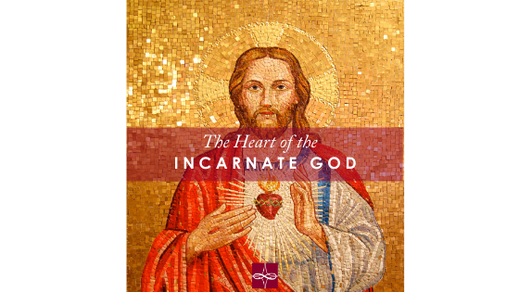
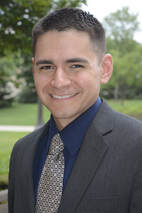
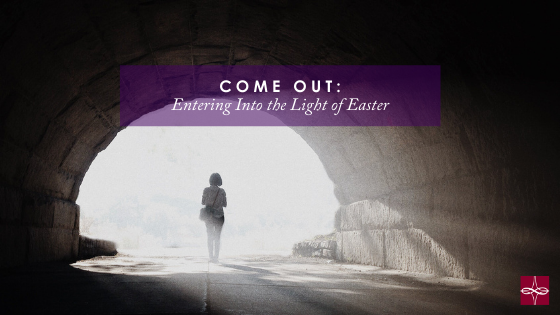

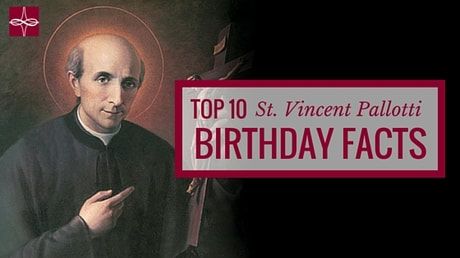
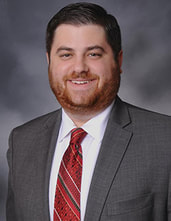


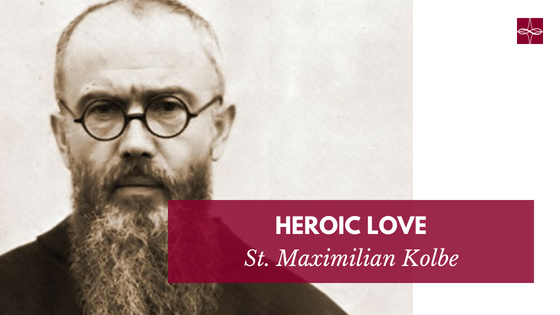

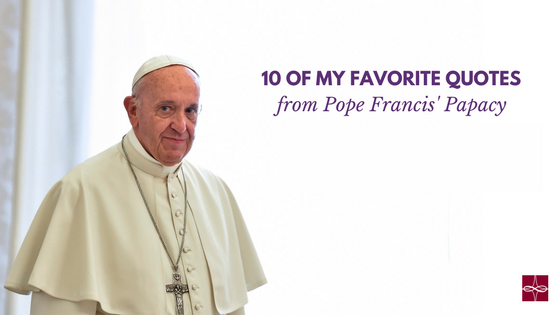




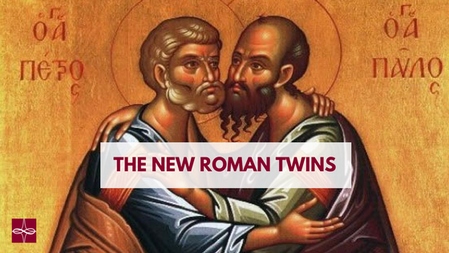





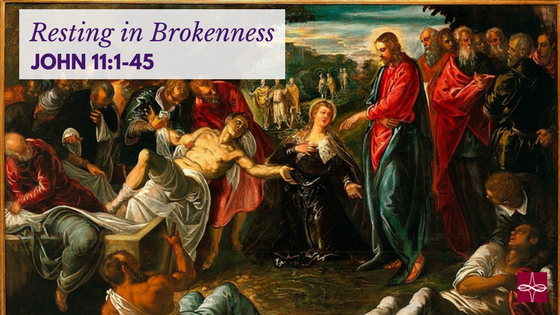
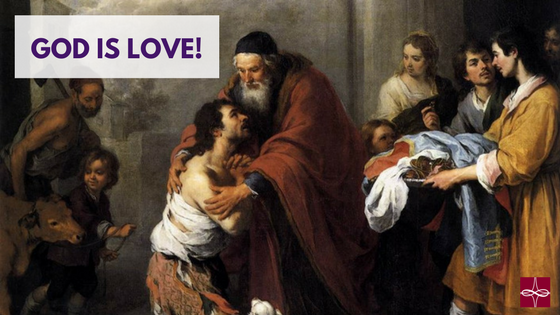

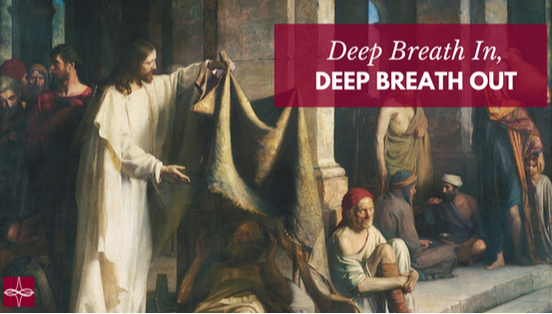


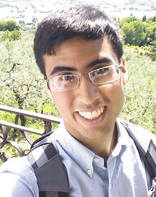
 RSS Feed
RSS Feed